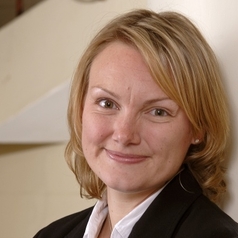In the era of selfies, “likes,” and #hashtags, the tobacco industry has adapted its marketing strategies and embraced social media to promote its addictive and deadly products to a young and online-savvy audience.
In Australia, tough government regulations have stopped tobacco companies from promoting smoking in mass media. But, in Indonesia, one of its closest neighbours, it’s an entirely different story. The tobacco industry can still advertise cigarettes on television, radio and billboards. And now, it’s using popular social media channels to market its products too.
PT HM Sampoerna/Philip Morris International (PMI) is one of the biggest tobacco companies operating in Indonesia. It has systematically linked a music concert series, SoundrenAline, that it sponsors, to internet-based marketing activities. These activities target young people to associate smoking with music, creativity, and self expression.
The high toll of tobacco use
A staggering 225,700 deaths are attributed to tobacco use every year in Indonesia. Two out of three adult men in Indonesia smoke daily.
Young Indonesians are also smoking. Nearly 20% of Indonesian junior high school students (aged 13 to 15 years) smoke. But nothing epitomises Indonesia’s addiction to smoking better than the notorious news story of the toddler who smoked up to 40 cigarettes a day.
Compare this to Australia, where less than 5% of children smoke, and overall smoking rates have been steadily declining for the past two decades.
Bans on tobacco advertising
Public health stakeholders around the world agree to curb the tobacco epidemic, especially among young people, tobacco advertising, promotion and sponsorship must be banned.
In 2012, the Indonesian government adopted a tobacco control regulation that includes some limitations on tobacco advertising, promotion and sponsorship.
Under the regulation, tobacco companies are banned from sponsoring events that are covered by the media. If they sponsor events not covered by the media, they are banned from using brand names and logos at those events. But outdoor advertising is permitted, except for designated smoke-free areas and main roads. The maximum size for outdoor ad is a generous 72 m2.
For print media, few meaningful restrictions apply, except that tobacco ads are banned from front cover of publications.
Online ads require age verification the viewer is above 18, and posted images and content should not encourage smoking.
TV can broadcast tobacco ads between 9.30pm and 5.00am. Indonesia is one of the only countries in the world that still allows tobacco commercials to be broadcast on television. All tobacco ads are required to have a pictorial health warning. In print ads 15% of the surface area and 10% of the total time of broadcast ads.
This patchwork, and only partial ban on tobacco advertising, promotion and sponsorship, coupled with weak enforcement, offers an ideal opportunity for Indonesian tobacco companies to evade and circumvent tobacco control regulations.
A ‘smoke free world’ but not a ‘smoke free Indonesia’
In 2017, PMI launched a global campaign announcing that the company was committed to a “smoke free future”. As part of this effort, PMI funded the Foundation for a Smoke Free World claiming that it “serve[s] as a convener of research, dialogue and ideas to reduce smoking globally.”
It seems this “worldwide” campaign doesn’t apply to Indonesia, or other low and middle income countries where PMI operates.
In Indonesia, PMI still aggressively advertises cigarettes to young people. PMI spent US$94 million on television advertising alone in 2016. Since 2002, PMI has been sponsoring a long standing concert series SoundrenAline. In 2016, it held a contest to redesign the package of one of its flagship brands, the A brand.
Case study of A brand marketing
We conducted a case study to document the use of conventional and new media to promote PMI’s A brand. We looked at how the company evades the regulation on tobacco advertising, promotion and sponsorship.
In 2016, the marketing strategy of the A brand included four key approaches:
1) sponsorship of the SoundrenAline music concert series
2) a competition to create a limited edition A Mild cigarette package
3) creation and hosting of an A brand-centered social networking website
4) posts on popular social media channels that leveraged the SoundrenAline event promotion.
In 2014, PMI removed the brand name of A Mild from its concert series. It renamed the A Mild SoundrenAline concert series to simply SoundrenAline.
At the 2016 concert, four different stages offered a variety of music genres and in addition to Indonesian acts, featured three high profile international bands: The Temper Trap from Australia, Block Party from the UK and Simple Plan from Canada.
Concert goers were addressed from the stages by the emcee and performers encouraged to “go ahead people” – a direct link to the A brand tagline.
A celebrated young Indonesian artist Leonard Theoshabrata won the limited edition A Mild pack design competition. His design was a red finger print. A special tagline “go ahead x leo” was developed as part of the pack.
The pack, printed on a special metal case with a cartoon-like back cover, contained a description of the design and how it endorsed the A brand image. The pack was also featured at the SoundreAline concert.
PMI created an online social networking community for A brand enthusiasts and future customers. At goaheadpeople.id registrants can click on links and find activities where they can learn, meet, create and sell creative products and get involved in projects or challenges.
Just like popular social media platforms, registrants can post comments, give likes and interact with other registrants and participate in off-line meet up events.
This creativity and empowerment message was not just shared with concert goers or members of the goaheadpoeple site, but also to the wider public through the social media channel Instagram. More than 65,000 Instagram posts marked with an A brand marketing #hashtags were found.
PMI evaded the regulation by simply changing the concert name, placing the health warning “Smoking Kills” on promotional material and supposedly restricting concert goers and promotional website users to age 18+.
PT HM Sampoerna director of corporate affairs Elvira Liania to The Conversation said that they market and sell their products to adult smokers (18 years old and above) and that they warn consumers about the health effects of their products. Elvira added that Sampoerna cooperates with 40,000 retail partners in Indonesia to place messages about banning cigarette sales to minors.
However, cigarette sales to children is high and that’s the reality on the ground. Data from Global Youth Tobacco Survey 2014 shows 64% of school age children can buy cigarettes easily.
As to the concert, it’s true that they only allow people 18 years of age and above to enter. However, the use of Instagram in the marketing of the concert eliminates that age boundary in the exposure on the promotion for the concert that’s sponsored by the tobacco company.
Simple solutions
Public health is always playing catch up with tobacco industry tactics. However, low-cost and easily applied actions could prevent high profile events, like the SoundrenAline concert, from going ahead.
For example, local governments in Indonesia have the authority to reject permits of any tobacco-sponsored event. Local governments could also designate all concert venues as smoke free, this would include prohibiting all tobacco promotions at the venue.
Banning online tobacco promotions will require the actual development of concrete actions, rather than the vague and unenforced notions currently in place.
Finally, Indonesia must join the rest of Southeast Asian region and sign the WHO global health treaty, the Framework Convention on Tobacco Control, to demonstrate its true commitment to a smoke free world.



 Panama Supreme Court Voids Hong Kong Firm’s Panama Canal Port Contracts Over Constitutional Violations
Panama Supreme Court Voids Hong Kong Firm’s Panama Canal Port Contracts Over Constitutional Violations  Google Halts UK YouTube TV Measurement Service After Legal Action
Google Halts UK YouTube TV Measurement Service After Legal Action  Uber Ordered to Pay $8.5 Million in Bellwether Sexual Assault Lawsuit
Uber Ordered to Pay $8.5 Million in Bellwether Sexual Assault Lawsuit  Ghislaine Maxwell to Invoke Fifth Amendment at House Oversight Committee Deposition
Ghislaine Maxwell to Invoke Fifth Amendment at House Oversight Committee Deposition  Panama Supreme Court Voids CK Hutchison Port Concessions, Raising Geopolitical and Trade Concerns
Panama Supreme Court Voids CK Hutchison Port Concessions, Raising Geopolitical and Trade Concerns  Federal Judge Signals Possible Dismissal of xAI Lawsuit Against OpenAI
Federal Judge Signals Possible Dismissal of xAI Lawsuit Against OpenAI  FxWirePro- Major Crypto levels and bias summary
FxWirePro- Major Crypto levels and bias summary  Trump Family Files $10 Billion Lawsuit Over IRS Tax Disclosure
Trump Family Files $10 Billion Lawsuit Over IRS Tax Disclosure  Meta Faces Lawsuit Over Alleged Approval of AI Chatbots Allowing Sexual Interactions With Minors
Meta Faces Lawsuit Over Alleged Approval of AI Chatbots Allowing Sexual Interactions With Minors 
































